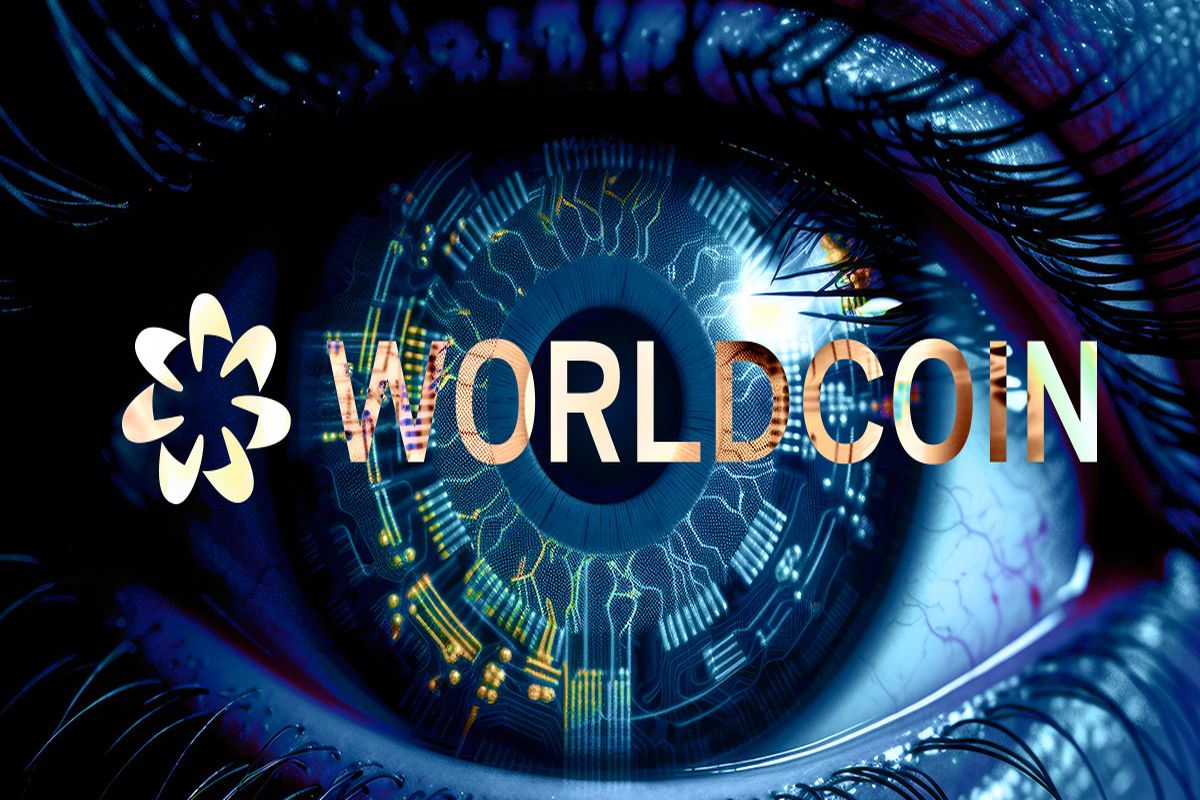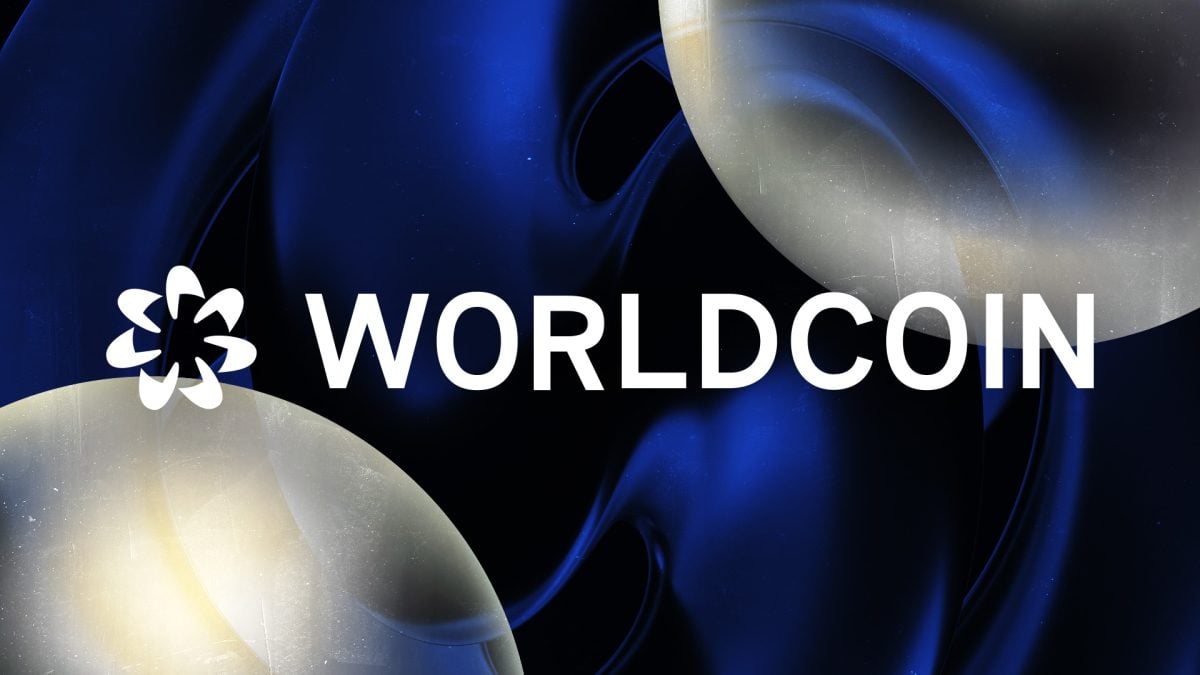After three years of development, the digital ID platform Worldcoin launched officially on July 24. Worldcoin was co-founded by OpenAI CEO Sam Altman and it aims to give users a valid digital identity, a crypto token – smartly named Worldcoin (WLD) – and a cryptocurrency wallet app.
Based on a statement by Worldcoin, advancements in artificial intelligence have made it quite challenging to determine whether online activity, digital artwork, written text, or everything else that is published on the internet came from real humans or artificial intelligence.
The firm now suggests solutions to help resolve the confusion by deploying some kind of digital passport, according to what it refers to as ‘proof of personhood.’ Altman wrote on Twitter:
“The goal is simple: A global financial and identity network based on proof of personhood. This feels especially important in the AI era. I’m hopeful Worldcoin can contribute to conversations about how we share access, benefits, and governance of future AI systems.”
Worldcoin’s platform validates a user’s identity by scanning their iris to set up secure, personal identification codes. These codes are saved on a decentralized blockchain, and the firm insists they cannot be duplicated or compromised to create false identities or engage in any form of fraud.
The firm states that it signed up over 2 million users in the beta testing stage. Now, Worldcoin plans to roll out scanning operations in multiple cities in 20 nations globally.
What Is Worldcoin?
Worldcoin is described as a digital identification platform that strives to offer every person on earth a convenient strategy of ensuring that they are a real human and not a robot or an AI algorithm.
The firm behind Worldcoin – Tools for Humanity – was co-launched by Altman, famous for creating ChatGPT. Paradoxically, Altman has played an integral role in sparking the current artificial intelligence gold rush, which has considerably worsened the problem that Worldcoin proposes to resolve.
Worldcoin has developed its digital passport infrastructure using the cryptographic and blockchain tools that support the general world of crypto. It also supports the WLD crypto token and a payments platform.
Related:Worldcoin Unleashes A Crypto Wallet For Finance And Identity
How Does Worldcoin Operate?
Hypothetically, Worldcoin is a three-legged stool: it just works when people adopt and use three mutually reinforcing components.
World ID
The core of the platform is World ID, which the firm insists will enable users to “verify their humanness” online while maintaining their privacy. The supposed “proof of personhood” is justified by an iris-scanning device known as the Orb.
Just like fingerprints, each person’s iris pattern is quite different. The Orb scans a user’s iris and utilizes its structure to develop a distinct identification code known as an IrisCode. The code is not linked to a user’s personal information – it exists only to prevent people from getting more than one World ID.
Once the Orb scans your iris and saves an anonymous IrisCode, it issues you a World ID. Also, it permanently deletes every iris image. The network is not dependent on pointing scanners at your eyeballs every time you have to validate your identity.
Every World ID is added to the Worldcoin blockchain, and users then deploy a cryptographically secure app that helps prove their identity.
As of this week’s launch, Worldcoin Orbs are available in Singapore, Seoul, Paris, Hong Kong, Tokyo, São Paulo, Nairobi, New York, Lisbon, Mexico City, San Francisco, and 25 other cities globally.
World App
The World App is designed as the repository of your World ID. According to Worldcoin, the app preserves users’ privacy while simultaneously offering access to an increasing number of decentralized finance applications.
This app works as a crypto wallet. Nevertheless, its main purpose is to store user credentials so that users can confirm their identity on any third-party application. Apart from the World ID, this app can hold Ethereum, Bitcoin, and USDC, and the firm says that more cryptos will be supported in the future.
WLD Cryptocurrency Token
Once users set up a World ID and download the World App, they gain access to the WLD crypto token.
WLD was issued to the users who participated in the beta program. A huge quantity of WLD was airdropped to the users on July 24 as part of the platform’s official launch. Crypto exchanges have listed WLD for trading, including Binance and KuCoin crypto exchanges.
Based on the Worldcoin white paper, up to 10 billion WLD will be issued in the next 15 years. Now, 143 million WLD are in circulation after the official launch. 43 million of these coins were allocated to verified World App users, and 100 million were put in the market to facilitate trading.
Worldcoin Attracts Lots Of Criticism
This project has already encountered lots of criticism for its ambitious goals and dubious methods of achieving these goals.
After the launch, Ethereum founder Vitalik Buterin expressed his fears about Worldcoin in a blog post. He insisted that the platform’s iris scans might be harvesting more information than the company is revealing, or someone could scan somebody else’s iris to determine whether they had a World ID.
In that context, an April 2022 MIT Technology Review article alleged that Worldcoin:
“Used deceptive marketing practices, collected more personal data than it acknowledged, and failed to obtain meaningful informed consent.”
The firm published a 25-page rebuttal to MIT Technology Review’s criticisms. It wrote:
“We want to make it very clear that Worldcoin is not a data company and our business model does not involve exploiting or selling personal user data. Worldcoin is only interested in a user’s uniqueness—i.e., that they have not signed up for Worldcoin before—not their identity.”
Worldcoin has also been on the receiving end for extensively promoting the platform in the developing world. Most of the new users are in Africa and Asia, increasing fears about exploitation. Pseudonymous crypto influencer ZachXBT tweeted:
“Most alarming to me is how the WorldCoin team has boasted about how many users they have. When in reality they have been exploiting people in developing countries.”
Also, in an October 2021 early funding round, Worldcoin got an investment from Sam Bankman-Fried, the infamous founder of the failed FTX crypto exchange.







